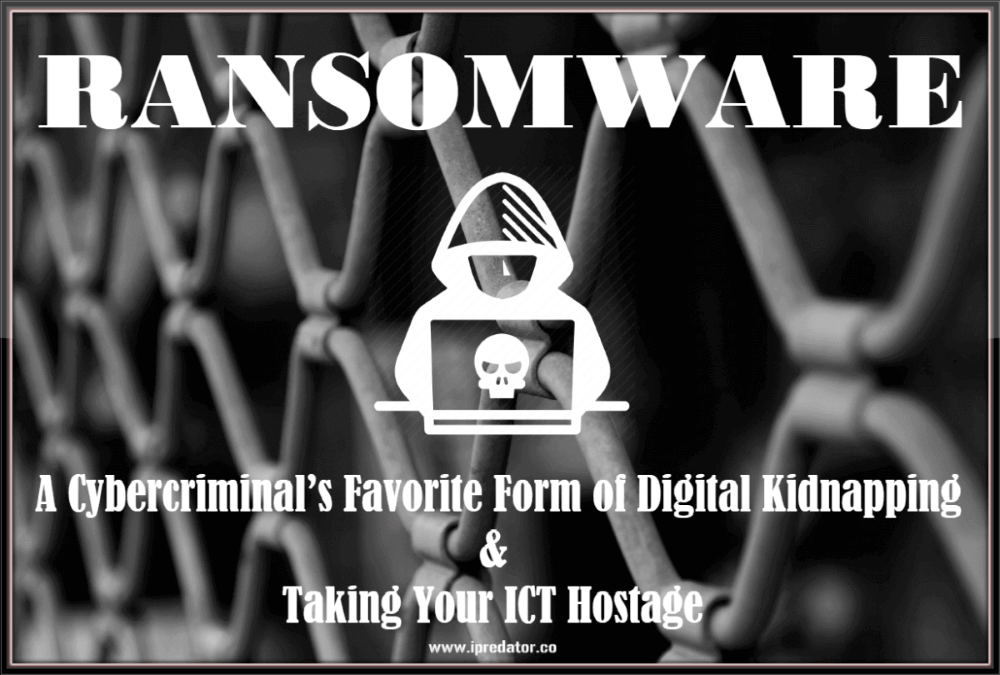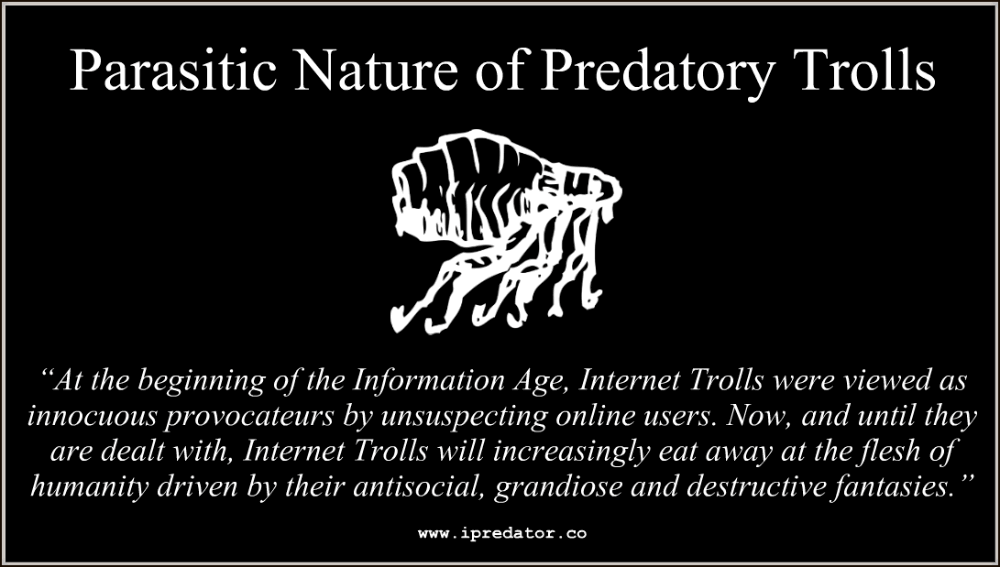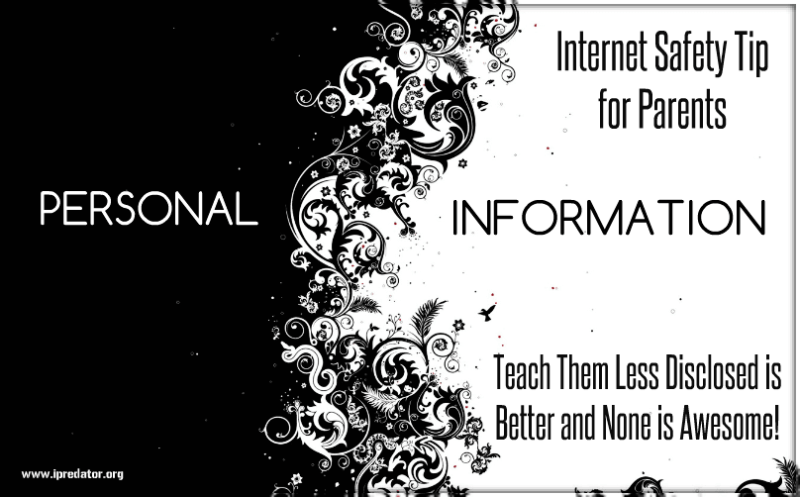iPredator Cyberpsychology & Internet Safety Notes
by
Michael Nuccitelli, Psy.D.
iPredator cyberpsychology & internet safety notes are concepts, terms, definitions and quotes related to the research by Michael Nuccitelli, Psy.D. The content is free to print and share for educational purposes. Interested parties can also direct download the PDF paper here:
Dark Psychology (2006)
Dark Psychology is the study of the human condition as it relates to the psychological nature of people to prey upon others. All of humanity has this potential to victimize other humans & living creatures. While many restrain or sublimate this tendency, some act upon these impulses. Dark Psychology seeks to understand those thoughts, feelings and perceptions that lead to human predatory behavior. Dark Psychology assumes that this production is purposive and has some rational, goal-oriented motivation 99.99% of the time. The remaining .01% is the brutal victimization of others without purposive intent or defined by evolutionary science or religious dogma.
Dark Psychology posits there are people who commit these same acts and do so not for power, money, sex, retribution or any other known purpose. They commit horrid acts without a goal. Simplified, their ends do not justify their means. There are people who violate and injure others for the sake of doing so. Within in all of us is this potential. A potential to harm others without cause, explanation, or purpose is the area explored. Dark Psychology assumes this dark potential is incredibly complex and even more difficult to define.
iPredator (2009)
iPredator is a person, group or nation who, directly or indirectly, engages in exploitation, victimization, coercion, stalking, theft or disparagement of others using Information and Communications Technology [ICT]. iPredators are driven by deviant fantasies, desires for power and control, retribution, religious fanaticism, political reprisal, psychiatric illness, perceptual distortions, peer acceptance or personal and financial gain. iPredators can be any age or gender and are not bound by economic status, race, religion or national heritage.
iPredator is a global term used to distinguish anyone who engages in criminal, coercive, deviant or abusive behaviors using ICT. Central to the construct is the premise that Information Age criminals, deviants and the violently disturbed are psychopathological classifications new to humanity. Whether the offender is a cyberstalker, cyber harasser, cybercriminal, online sexual predator, internet troll, cyber terrorist, cyberbully, online child pornography consumer or engaged in internet defamation or nefarious online deception, they fall within the scope of iPredator. The three criteria used to define an iPredator include:
- A self-awareness of causing harm to others, directly or indirectly, using ICT.
- The usage of ICT to obtain, exchange and deliver harmful information
- A general understanding of Cyberstealth used to engage in criminal or deviant activities or to profile, identify, locate, stalk and engage a target.
Unlike human predators prior to the Information Age, iPredators rely upon the multitude of benefits offered by Information and Communications Technology [ICT]. These assistances include exchange of information over long distances, rapidity of information exchanged and the infinite access to data available. Malevolent in intent, iPredators habitually deceive others using ICT in the abstract and artificial electronic universe known as cyberspace.
Cyberbullying
Cyberbullying is threatening or disparaging information directed at a target child delivered through Information and Communications Technology (ICT). Like traditional bullying, cyberbullying is harmful, repeated and hostile behavior intended to taunt, embarrass, deprecate & defame a targeted child. Dissimilar to traditional bullying is cyberbullying includes a phenomenon called “Cyberbullying by proxy”. Cyberbullying by proxy is when a cyberbully encourages or persuades other ICT users to engage in deprecating and harassing a target child.
Cyberbullies are usually motivated by a need for peer acceptance and/or power and control. A small percentage of cyberbullies engage in these maladaptive behaviors out of ignorance of the distress they cause a target child. The most malevolent form of cyberbully, the Narcissistic Cyberbully, feels minimal remorse for the harm they inflict upon their victim. It has been speculated that children view the real world and the online or virtual world as part of a seamless continuum.
Cyberstalking
Cyberstalking is the use of Information and Communications Technology (ICT) to stalk, frighten, control, manipulate or habitually threaten a child, adult, business or group. Cyberstalking is both a tactic used by an ICT assailant and typology of pathological ICT user. Cyberstalking tactics include false accusations, threats of harm, habitual monitoring, surveillance, implied threats, identity theft, damage to property and gathering information to manipulate and control their target.
To meet the criteria of cyberstalking, the information and tactics used must involve a credible or implied physical and psychological threat to the target. An example of physical threat involves bodily harm to the target or their loved ones using ICT. Examples of psychological threats involve using disparagement, humiliation, disinformation dissemination and environmental damage to the target’s reputation, credibility or financial status if the target does not acquiesce to the cyber stalker’s demands.
Cybercrime
Cybercrime is criminal activity using Information and Communications Technology (ICT) as the tools to target victims or businesses. All forms of cybercrime involve both ICT and a targeted victim(s). Cybercrime is segmented into two distinct categories involving the focus of the cybercriminal activities. These activities are focalized on the technology of Information and Communications Technology (ICT) to achieve the cybercriminal’s aims for personal and financial gain or targeted at others or businesses.
When the individual is the main target of cybercrime, ICT is the tool rather than the target. These are the crimes, which have existed for centuries in offline societies. Cybercriminals utilize technological tools to increase their potential pool of victims and make them difficult to identify and apprehend. Presently, the most common types of cybercrime are identity theft, hacking, online scams, fraud, computer system attacks, illegal online content, prohibited online content and digital piracy.
Cyber Harassment
Cyber Harassment is the use of Information and Communications Technology (ICT) to harass, control, manipulate or habitually disparage a child, adult, business or group without a direct or implied threat of physical harm. Unlike physical harassment involving face-to-face contact, cyber harassment requires the use of ICT and is verbal, sexual, emotional or social abuse of a person, group or organization. The cyber harasser’s primary goal is to exert power and control over the targeted victim(s).
When minors are involved, cyberbullying is the term describing cyber harassment and when direct or implied physical harm to the targeted victim(s) is involved, cyber harassment becomes cyberstalking. Another similar term often used to define cyber harassment, but slightly different in assailant modus operandi is Internet Troll.

Cyber Terrorism
Cyber terrorism has multiple definitions and applies to a variety of cyber-attack intricacies that may involve one online assailant or many. As a typology of iPredator, Cyber terrorism is defined as the cognitive, affective, behavioral and motivational factors of terrorist groups or their agents who use Information and Communications Technology (ICT) to impair, harm or destroy non-combatant targets. Cyber terrorism is different from activism, hacktivism and cybercrime in that the primary purpose of a cyber terrorist attack is to cause physical violence or extreme financial harm.
Per the U.S. Commission of Critical Infrastructure Protection, cyber terrorist targets include the banking industry, military installations, power plants, air traffic control centers, and water systems. More specifically, cyber terrorism attempts to interrupt, destroy or exploit another group or nation’s ICT vulnerabilities to adversely affect their critical infrastructure.
Online Predators & Online Child Pornography
Online Predators: Online Predators has a variety of different terms used to describe the same patterns and motivations for their abuse. Historically, those who are not familiar with the profiles of sexual predators, pedophiles and child molesters tend to view them as being easily identified and incompetent. Not only are most sexual predators their victim’s neighbor, relative or mentor, but the “veil of anonymity” in cyberspace makes accurate assailant identification a daunting task.
Online Predators are defined as adult online users who seek to exploit vulnerable children or adolescents for sexual or other abusive purposes. Online Predators are sexual predators who use Information and Communications Technology and social media to locate, target and victimize minors. Although online sexual predation occurs between adult online users, the underage minor child is the primary target.
Online child pornography is the production, consumption and distribution of sexual content involving minors. Although becoming the 8th iPredator typology, it falls within the online child predator genre. To be more specific, online child pornography includes online users who are sexually aroused by, or financially motivated by online sexual content involving minors. Consumers and distributors of online child pornography are not all sexually aroused by the content, but by the financial rewards to be gained.
Internet Trolls
An Internet Troll is a colloquial expression used to define an online user who uses Information and Communications Technology (ICT) to provoke, defame, anger, tease, flame, or incite other online users. Often, the internet troll does not know the target recipient(s) of their vitriolic statements and behaviors. Internet trolls regularly appear in all forms of online mediums ranging from online video gaming gatherings to chatroom and forum discussions.
The motivations for an internet troll’s provocative behaviors are numerous. Despite the variations in modus operandi, most trolls are seeking attention, recognition, stimulation pseudo-notoriety and retribution for some unknown perceived injustice. Although there is no hard evidence or clinical research validating the psychology of the internet troll, it is commonly believed that the “Veil of Anonymity” afforded to every online user inspires some to engage in egregious behaviors.
Troll Triad
Troll Triad is a cyber psychopathology and profiling construct that introduces a three-pronged archetypal model defining groups of online users who engage in defamation of character, slander & libel. Troll Triad is not just a facetious term describing groups of malevolent online users who use Information and Communications Technology to defame, manipulate, curry favor and seek support from other like-minded online users.
Troll Triad is also a conceptual framework and template describing how groups of successful iPredators are partitioned into three archetypal segments. This troika includes the Cerebral, Provocateur and the Crier. When these three elements mix correctly, the Troll Triad becomes a masterpiece of human predation alchemy. Being a disciple of Carl Jung and Alfred Adler, I strongly subscribe to Carl Jung’s theory of Archetypes and Alfred Adler’s theory of Social Interest. Using their constructs as guidelines, Troll Triad is a concept relevant to the Information Age.
Predatory Trolls
Predatory Trolls are a new breed of internet troll that evolved from the classic troll. They are online users who both choose online users randomly and intentionally. Just as classic trolls, predatory trolls can be ex-work associates, ex-partners and loved ones. They may also be unknown online users. Predatory trolls may target others alone, but increasingly work in groups (aka, Troll Triad). Like all trolls, Predatory trolls are driven by needs for power, recognition, peer acceptance and control.
Different from classic trolls is that their primary goal is to destroy an online user’s reputation, online presence and trustworthiness. With the advancement of Information and Communications Technology (ICT), predatory trolls may be employed by groups and governments in covert operations to destroy a target’s reputation. Predatory Trolls seek to destroy their target’s reputation and the reputation of their family members, children, careers and loved ones.
5PV Model
The 5PV Model is a cybercriminal five factor theoretical model used to define all interactions between people who use Information and Communications Technology (ICT) for personal and/or benevolent reasons and those who use ICT for selfish, nefarious and/or malevolent reasons. The five terms of 5PV are iPredator, iPrey, iPrevention, iPreservation and iVictim. The 5PV model is a representation of the five elements involved in criminal, deviant and abusive human interactions as they relate to the internet and Information and Communications Technology.
The primary difference between this model and all other criminal, deviant and abuse areas is the environment. The artificial environment is cyberspace and benefits the iPredator. Unlike any other territory, humanity has explored since the beginning of human civilization, cyberspace is a frontier where the potential iVictim has little grasp to evaluate social exchanges in a realistic way.
iPredator Bridge
iPredator Bridge is a theoretical tenet of iPredator representing the psychological, perceptual & behavioral trajectory of people who use Information and Communications Technology (ICT) to harm others motivate by self-righteousness, moral turpitude, religious/political/philosophical convictions and pro-social perceptual distortions. Not driven by criminal, malevolent or deviant endeavors, iPredator Bridge seeks to define why some people approach the nefarious and malevolent realm of iPredator, decide to proceed, and then continue along a trajectory where their cognitive, affective, behavioral and perceptual actions harm others or societies.
Like the iPredator, they are motivated by personal convictions, greed, power, control, narcissism or psychopathology. Different from the iPredator, they have yet to fully engage in criminal and/or deviant activities using ICT or use complex perceptual distortions to validate the harm they cause. iPredator Bridge investigates why some people draw near to this nefarious and malevolent realm and either proceed in their maladaptive trajectory or cease and desist.

Cyberstealth
Cyberstealth is a concept formulated along with iPredator and is a term used to define a method and/or strategy by which iPredators use Information and Communications Technology (ICT) to establish and sustain complete anonymity while they troll and stalk a target. Cyberstealth is a methodology entrenched in online deception. Given the internet inherently affords everyone anonymity, Cyberstealth used by iPredators range from negligible to highly complex and multi-faceted.
The rationale for using “stealth” in the suffix of this term, serves to remind ICT users the primary intent fueling iPredators. This intent is to hide their identity by designing false online profiles, identities, covert tactics and methods to ensure their identities remain concealed reducing their probability of identification, apprehension and punishment. Unlike classic deception used by traditional criminals and deviants, online deception completely relies on the anonymity and “veil of invisibility” available to all ICT users.
Offline Distress Dictates Online Response (ODDOR)
Offline Distress Dictates Online Response (ODDOR) is a sub-tenet of iPredator, which posits that offline psychological functioning directly influences one’s online interactions. Whether someone is an online assailant, cyber-attack target or both, ODDOR does not discriminate. ODDOR postulates that temporary and long-standing psychological states can significantly taint an online user’s behaviors and interpretations. Perceptually isolated, ignorance of the existence of ODDOR and experiencing atypical affective and cognitive states increases the probability of being targeted by an online assailant.
In addition to being at a greater risk of being cyber attacked, ODDOR influences an online user to partake in destructive and self-destructive online activities. If a person is self-aware and reasonably healthy, their levels of ODDOR are less likely to become problematic. Just as self-awareness acts as a buffer between mental health and dysfunction, the same holds true for ODDOR.
Online Psychopathy (aka, iPredopathy)
Online Psychopathy (aka, iPredopathy) is an Information Age criminology and human consciousness construct replacing the pre-Information Age profiles of sociopathy and psychopathy. iPredopathy is an advanced stage characterological disorder describing any adolescent to adult male or female who skillfully uses Information and Communications Technology [ICT] to troll, identify, control and manipulate their human targets. Driven by grandiosity, sexual perversion or perceptual distortion, iPredopaths experience no remorse or shame for the harm they cause others.
Just as iPredators, many iPredopaths do not break the law and live unscathed by law enforcement, fraternal organizations, religious institutions and the legal system.
Using cyberspace [aka, Internet, Darknet, Usenet] and electronic devices, Online Psychopaths [aka, iPredopaths] design and implement their criminal, deviant, violent, deceptive and cyberstalking tactics. Their human quarries are unsuspecting, vulnerable, submissive and internet safety ignorant children, older adults, unprepared businesses and psychologically distressed adults.
Phantasist
A Phantasist is an online user who obsessively prioritizes & protects their profile, avatar or persona to engage in malevolent or nefarious activities. In most cases, they use the online persona to hide their identity and exploit or intimidate others. The Phantasist has difficulty differentiating their true self from their online identity (aka, Reality-Virtuality Continuum), which is driven by their need to control, subjugate or seek attention from others.
Although probable, a Phantasist does not have to suffer from a mental illness, personality disorder or medical condition. For unknown reasons, the Phantasist increasingly becomes absorbed by their online identity. Enveloped by their online identity, they enter what has been termed the Aspect. The Aspect is the psychological and perceptual realm whereby their offline life becomes indistinguishable from their online life. Age of onset, frequency of Aspect states and time spent online determine the severity of the Phantasist.
Information Age Education (IAE)
Information Age Education (IAE) is a cyber-attack prevention paradigm offering a resolution to reducing the negative consequences of living in the Information Age. Information and Communications Technology presents positive and negative influences upon humanity, in which the negative aspects grow at a feverish pace. Cyberbullying, cyberstalking and online sexual predation are just a few of these destructive forces. IAE prioritizes prevention education, non-denominational family values, and humility as solutions to connecting the disconnected, educating the ignorant, and conquering the corrupt.
IAE assumes that, along with the plethora of gifts and benefits information technology offers society, the dark side of cyberspace has ensnared an ever-growing number of the online citizenry. IAE suggests that people of all ages are migrating towards a state of disconnectedness, shying away from tangible interpersonal relationships, family values, the practice of humility and simply basic kindness. IAE asserts that the only way to thwart the disintegration of disconnectedness is by awareness and cyber-attack prevention education.
Information Age Wellness (IAW)
Information Age Wellness is the practice and study of how Information and Communications Technology (ICT) influences people’s physical, psychological, perceptual and spiritual well-being. By incorporating safe and productive knowledge and practices, citizens and their loved ones of the Information Age are both safer from cyber-attacks and able to focus on mind, body & spiritual optimization endeavors. IAW incorporates mind, body, spirit and technology for those seeking a healthy lifestyle.
It is a combination of Internet Safety, Spirituality, Integrative Medicine & Health Psychology while recognizing the growth and dependency of information technology upon people. IAW should not be confused with online healthcare, telemedicine, e-health or any other medically themed field that interfaces with Information and Communications Technology. Information Age Wellness is more of a conceptual framework, which includes physical health, adaptive psychological functioning, spiritual health & well-being in relationship to technology.
Information Age Forensics (IAF)
Information Age Forensics (IAF) is the science and technology of investigating the typologies, motivations, tactics and psychopathology of iPredators who use Information and Communications Technology (ICT) for maladaptive, deviant or criminal objectives. IAF examines the iPredator typologies of cyberbullying, cyberstalking, cyber harassment, internet trolling, cybercrime, online sexual predation, cyber terrorism and habitual online deception. Vital to full comprehension of IAF is considering valid the premise of iPredators being variants of the classical criminal, deviant and aggressor.
Information and Communications Technology, cyberspace and the Information Age have created an entirely new population segment thriving off information technology for maladaptive and anti-social goals. Information technology and cyberspace are not tools used by Information Age aggressors (iPredators). They are a fundamental part of this new generation seeking to harm, victimize, control or dominate their chosen victim(s). Information Age Forensics (IAF) integrates the fields of Criminal, Cybercriminal, Abnormal and Developmental Psychology with iPredator and Digital Forensics Investigation.
Internet Addiction
Internet Addiction (aka, Internet Abuse, Internet Dependence & Internet Use Gaming Disorder) is an umbrella concept defining a child or adult’s compulsive and progressive abuse of the internet and electronic devices designed to obtain, exchange or disseminate information. Although the internet is the predominate arena in which Internet Abuse takes place, electronic devices and communications channels not internet enabled are also included in the definition. Internet Abuse causes dysfunctional cognitive, affective, behavioral & perceptual intrapersonal consequences accompanied with employment, academic, familial, peer & intimate partner interpersonal consequences.
On a continuum of severity, ranging from absent to mild, cessation of Internet and/or electronic device usage causes withdrawal symptomatology, psychological and/or physiological, combined with perceptual tolerance. Also on a continuum of severity, Internet Abusive online users engage in criminal, deviant and/or deceptive online activities ranging from absent to severe. The chronic and more debilitating condition, Internet Dependence, is more chronic, severe and self-destructive.
iPredator Victim Intuition (IVI)
iPredator Victim Intuition (IVI) is an iPredator construct sub-tenet reserved for seasoned online assailants. IVI is an iPredator’s aptitude to sense a target’s online vulnerabilities, weaknesses and technological limitations increasing their cyber-attack success with minimal ramifications. Some iPredators develop an intuition for knowing what Information and Communications Technology (ICT) user a successful target through practice will be, learning and observation of other iPredators.
Practice, trial and error, understanding of human behavior and knowledge of internet safety and information security practices is where an iPredator’s IVI acumen thrives. An iPredator’s IVI falls on a continuum of dexterity whereby there are iPredators who are IVI skilled and iPredators who are novices. Whether the iPredator is advanced or a novice in their IVI acumen, the fact that they engage in developing an IVI makes them a potentially dangerous ICT user.
Cyberspace is an Extension of Human Consciousness
(CEHC)
CEHC is a theoretical concept positing that Information and Communications Technology (ICT) is gradually becoming, or already is in a rudimentary form, an extension of human consciousness and subjective processing. It is postulated that the digital universe is an abstract and artificial realm, which is evolving into an exact replica of the human brain. Neuronal connections and digital networks appear incredibly similar. Place an image of the internet and an image of the brain’s neuronal connections side-by-side and they look exactly the same.
It is easy to accurately conclude that technology has been created by a vast number of thinking human beings. Under this premise, it is not a leap of faith to assume that the legion of brains, working on technological advancements, are creating a replica of itself. An inorganic facsimile of the most complex organic machine called the brain. The closer our collective brains get to creating a Xerox copy of itself, the more human consciousness will view cyberspace as an attractive option.
The brain and unconscious are designed to have self-preservation as the primary goal. Since the physical body is finite, a day will come when human consciousness will be capable of transferring to the vast ocean of cyberspace. Once this occurs, the physical shell called the body is no longer needed. CEHC is not artificial intelligence, but the future home of human consciousness within a digital framework. Although there is no research yet to confirm the existence of CEHC, the anecdotal and personal experience evidence is immense.
Internet Safety & iPredator Quotes

“Comfort the Victims, Educate the Ignorant & Conquer the Corrupt.”
“Information and Communications Technology (ICT), social media and cyberspace itself has the uncanny ability to tap into our perceptual world and distort our interpretations of oneself and others. For those who experience gratitude, it benefits the human condition and community. For those who suffer wrath, anguish or ingratitude? Condemnation of self and society becomes the weapon. “.
“Cyberspace does not forgive, forget or explain. What we publish online is permanently imprinted like memories of the mind.”
“Society is being lulled into a false sense of trust and reliance on technology, taking information and “connection” to others in cyberspace at face value. Like the child in the fairy tale, Little Red Riding Hood, innocently wandering through the forest, we erroneously believe that the “Wolf” is whoever he appears or claims to be. Just as Little Red Riding Hood, we’re in danger of falling prey to iPredator.”
“In nature, wild animals stalk and measure their prey using stealth and tactical strategies increasing their probability of success while decreasing potential for injury. iPredators also use stealth, Cyberstealth, to stalk online users increasing the probability of achieving their aims, while decreasing their potential of identification and punishment.”
“Malevolent in intent, iPredators rely on their capacity to deceive others using information technology in the abstract and artificial electronic universe known as cyberspace. Therefore, as the internet naturally offers all ICT users anonymity, if they decide, iPredators actively design online profiles and diversionary tactics to remain undetected and untraceable.”
“The Dark Side of Cyberspace is a metaphor and conceptual framework defining a virtual environmental realm that includes all criminal, deviant, deceptive, harmful and malevolent activities in the abstract universe of cyberspace. Whereas iPredator is a criminal, deviant and disturbed typology construct, Darkside of Cyberspace also includes legal and illegal online activities, as well as, destructive and self-destructive online behaviors.”
“At first perception, it seems as new Information Age technological advancements appear seemingly “heaven sent”, but all too often presents the human experience with an increasingly primitive and maladaptive response suffocating the realms of common decency, respect and humility.”
“Although the benefits of Information and Communications Technology far outweigh the detriments for society, humanity has been seduced by the illusory notion that more technology translates into a better quality of life.”
“The Information Age technocentric concept of being “connected” has become a paradoxical disconnection causing humanity to lose their instinctual drives for social cohesion, allegiance and selflessness. As dependency upon Information and Communications Technology [ICT] spreads throughout the collective human consciousness, the care for neighbors’ withers and online connections are deemed more valuable than reality-based relationships.”
“Information and Communications Technology (ICT) is a metaphorical needle for injecting ignorance into an online predator’s target so the child thinks their sexually themed conversations are innocent banter.”
“The more psychologically isolated we become; the more cyberspace perceptually distorts our reality.”
“Unlike classic internet trolls who intermittently serve a pro-social function, predatory trolls are useless digital miscreants that cyber-attack others for profit or personal gain.”
“The idiom, “out of context”, must be begrudgingly accepted by citizens of the Information Age. Online assailants use partial truths and ambiguous information, “out of context”, to character assassinate, defame and slander their targets.”
“Cyberspace can be a classroom, insane asylum, dance floor or lethal weapon. It’s your choice.”
“As the Information Age evolves, trust has become a rare commodity and betrayal flows like water. It is never too late to inject mutual respect and common decency into the ass of cyberspace.”
“The Phantasist is a psychopathic, psychopathological or ideologically driven online user who uses their online identity to attack others. All iPredators are Phantasists but not all Phantasists are iPredators until they attack.”
“A child’s brain has hundreds of millions more neurons and neuronal connections than an adult. What they do not have are adult memories enabling them to accurately interpret what it means to be abused, exploited and traumatized online.”
“If you spend too much time in cyberspace without calm, you are bound to project your insecurities and skewed perceptions upon others.”
“If an online user is quick to judge, shameless and defines him or herself as an expert before being honored as one; they are quite possibly a psychopath.”
“The dark side of cyberspace is the manifestation of, and theater for, the dark side of human consciousness using information technology as the stage.”
“Cyberspace allows our darkest fantasies to be fueled by the likeminded. Once validated, they are one step closer to becoming reality.”
“Given the veil of anonymity is easily worn in cyberspace, accountability evaporates for the online assailant (aka, iPredator).”
“Soon, information will become the most lethal & feared weapon. More valuable than diamonds and intoxicating like morphine.”
“Online harassment is peppered with victim blaming for the target and self-satisfaction for the assailant.”
“Although I thought my Dark Psychology construct involved criminal, deviant and cybercriminal minds, I must now accept that cyberspace has become an extension of human consciousness and a realm for all dark fantasies.”
“Troll Triad was originally written to protect myself from character assassination by three adult online users. The Cerebral, Provocateur and Crier archetypes may in fact apply to task functions in all gang stalking and internet troll groups.”
“Cyberbullies believe that power is born by humiliating others using information technology. To them, it is their distorted perceived destiny to reign supreme.”
“Online predators love all your child’s social site comments, posts, online gaming pursuits, music and images. All they ask from your child is to keep their relationship secret.”
“When eighty billion neurons, with one trillion plus neuronal connections, in the brain connect to the trillions of digital connections in ICT, the dance between organic and inorganic networks begins.“

Michael Nuccitelli, Psy.D.
Michael Nuccitelli, Psy.D. is a NYS licensed psychologist, cyberpsychology researcher and online safety educator. In 2009, Dr. Nuccitelli finalized his dark side of cyberspace concept called iPredator. Since 2010, he has advised those seeking information about cyberbullying, cyberstalking, cybercriminal minds, internet addiction and his Dark Psychology concept. By day Dr. Nuccitelli is a practicing psychologist, clinical supervisor and owner of MN Psychological Services, PLLC. After work and on the weekends, he volunteers helping online users who have been cyber-attacked. Dr. Nuccitelli’s is always available to interested parties and the media at no cost. This website and everything created by Dr. Nuccitelli is educational, free and public domain.

